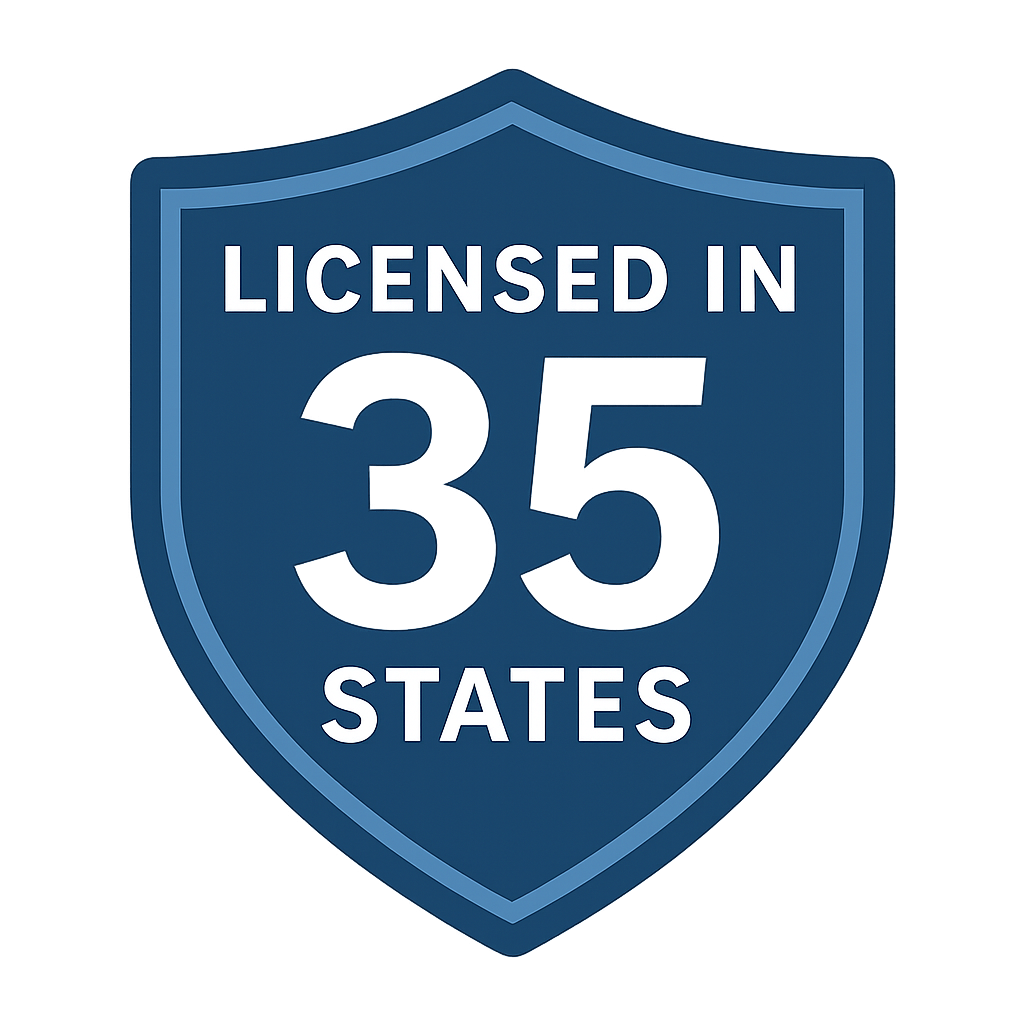Before Buying a House, Look at These 10 Things
Buying a house is one of the most significant decisions you’ll make. Our comprehensive guide helps you evaluate these 10 critical factors to ensure your new home meets your needs and is a sound investment.
When you’re considering buying a house, it’s crucial to look beyond the surface appeal. Many first-time homebuyers focus primarily on aesthetics or location without considering important factors that could significantly impact their finances and quality of life. This comprehensive guide outlines the 10 essential things to look for before buying a house, helping you make an informed decision that protects your investment and ensures your new home meets all your needs.
At A Plus Insurance, we understand that a home is more than just a building—it’s your sanctuary, your investment, and your legacy. That’s why we’ve compiled this detailed checklist to help you navigate the home-buying process with confidence.
Before Buying a House, Look at These 10 Things
1. Location and Neighborhood
The old adage “location, location, location” remains true for good reason. Before buying a house, thoroughly research the neighborhood. Consider factors like school district quality even if you don’t have children, as this affects property values. Check crime statistics, proximity to essential services like hospitals and grocery stores, and future development plans that could impact your quality of life or property value.
Visit the neighborhood at different times of day and on weekends to get a true sense of the area. Talk to potential neighbors about what they like and dislike about living there. Remember that while you can change almost anything about a house, you can’t change its location.
2. Structural Integrity
Before buying a house, a thorough inspection of its structural elements is non-negotiable. Look for signs of foundation issues like cracks in walls or uneven floors. Check the condition of the roof, as replacement can cost thousands of dollars. Inspect the basement for water damage or moisture issues, which could indicate drainage problems.
Hire a qualified home inspector to examine the property thoroughly. They can identify potential issues with the foundation, framing, and other structural components that might not be visible to the untrained eye. This due diligence can save you from costly repairs down the line.
3. Electrical, Plumbing, and HVAC Systems
Older homes may have outdated electrical systems that can’t handle modern power demands or present safety hazards. Before buying a house, ask about the age and condition of the electrical panel, wiring, plumbing pipes, and HVAC system. These systems are expensive to replace and crucial for your comfort and safety.
Look for signs of recent updates or needed repairs. Check water pressure in all faucets and ensure toilets flush properly. Test the heating and cooling systems to verify they work efficiently. An inefficient HVAC system can significantly increase your utility bills.
4. Potential for Water Damage
Water damage is one of the most common and costly issues homeowners face. Before buying a house, check for signs of past or current water issues. Look for water stains on ceilings and walls, musty odors, or warped flooring. Inspect the basement thoroughly, as this is where water problems often manifest.
Examine the grading around the house—the ground should slope away from the foundation to direct water away. Check gutters and downspouts to ensure they’re functioning properly. Understanding these factors before buying a house can help you avoid expensive repairs and potential issues with your homeowners insurance.
5. Energy Efficiency
Before buying a house, consider its energy efficiency, as this directly impacts your monthly utility bills. Look for features like double-pane windows, adequate insulation, energy-efficient appliances, and modern HVAC systems. Ask for utility bills from the previous owners to get an idea of average monthly costs.
An energy audit can identify areas where the home loses energy and suggest improvements. While some energy-efficient upgrades can be made after purchase, others are more difficult and expensive to implement. A home with good energy efficiency not only saves you money but is also more comfortable to live in.
6. Property Size and Layout
Before buying a house, think carefully about how the property size and layout fit your current and future needs. Consider the number of bedrooms and bathrooms, the flow between living spaces, and storage availability. Think about your lifestyle—do you need a home office, playroom, or space for hobbies?
Evaluate the yard size and maintenance requirements. A large yard might be appealing but consider the time and money needed for upkeep. Also, think about expansion potential if you might need more space in the future. Some layouts are easier to modify than others.
7. Natural Light and Ventilation
The amount of natural light and quality of ventilation significantly impact your living experience. Before buying a house, visit at different times of day to assess how light moves through the spaces. Well-lit homes feel more spacious and can reduce electricity costs.
Check that windows open easily and provide adequate cross-ventilation. Poor ventilation can lead to moisture problems and poor indoor air quality. Consider the orientation of the house—south-facing windows typically provide more natural light throughout the day.
8. Storage Space
Ample storage is one of those things you don’t appreciate until you don’t have enough. Before buying a house, carefully evaluate closet space, pantry size, attic accessibility, basement storage, and garage space. Think about where you’ll store seasonal items, luggage, and other belongings that aren’t used daily.
Creative storage solutions can be implemented later, but built-in storage is always preferable. Lack of adequate storage can lead to clutter and frustration, diminishing your enjoyment of the home.
9. Homeowners Association (HOA) Rules and Fees
If the property is part of a homeowners association, thoroughly review the HOA documents before buying a house. Understand the monthly or annual fees and what they cover. More importantly, review the rules and restrictions regarding exterior modifications, parking, pets, and rental policies.
Some HOAs have strict regulations that might not align with your lifestyle. Additionally, consider that HOA fees can increase over time, affecting your overall housing costs. Make sure you’re comfortable with both the financial commitment and the lifestyle restrictions.
10. Resale Value Considerations
Even if you plan to stay in the home for many years, it’s wise to consider its resale potential before buying a house. Look for features that appeal to a broad range of buyers, such as a functional layout, updated kitchens and bathrooms, and good curb appeal.
Consider the home’s position in the neighborhood—properties at the end of cul-de-sacs or with premium lots often maintain value better. Also, think about any unique features that might limit your potential buyer pool when it’s time to sell. A home that holds its value is a better long-term investment.
Insurance Considerations Before Buying a House
Before buying a house, it’s crucial to understand how your choice will impact your insurance needs and costs. The right homeowners insurance protects your investment and provides peace of mind.
| Home Feature | Insurance Impact | Considerations |
|---|---|---|
| Age of Roof | Older roofs may increase premiums or require replacement | Roofs over 20 years old may not be fully covered |
| Electrical System | Knob-and-tube or aluminum wiring can increase premiums | Modern systems may qualify for discounts |
| Plumbing | Polybutylene pipes may not be insurable | Consider replacement costs if problematic materials found |
| Location | Flood zones or high-crime areas increase premiums | May require additional flood insurance policies |
| Swimming Pool | Increases liability risk and premiums | Proper fencing and safety features may reduce costs |
| Security Systems | Can lower premiums by 5-20% | Monitored systems typically offer greater discounts |
Before buying a house, contact A Plus Insurance to get a preliminary quote based on the property details. This can help you budget accurately and avoid surprises at closing.
Understanding the True Costs of Homeownership
Before buying a house, it’s essential to look beyond the purchase price and understand all associated costs. Many first-time buyers underestimate the ongoing expenses of homeownership.
Before buying a house, create a comprehensive budget that includes all these expenses. Remember that maintenance costs can be unpredictable, so it’s wise to establish an emergency fund specifically for home repairs.
Frequently Asked Questions About Buying a House
How much homeowners insurance do I need when buying a house?
You typically need enough coverage to rebuild your home if it’s destroyed. Most lenders require at least the amount of your mortgage, but you should consider the full replacement cost, not just the market value. Our experts at A Plus Insurance can help you determine the right amount of coverage for your specific situation.
What’s the difference between market value and replacement cost?
Market value is what your home would sell for in the current real estate market, which includes the land value. Replacement cost is how much it would take to rebuild your home from scratch with similar materials. Insurance is based on replacement cost, not market value.
Does homeowners insurance cover all types of damage?
Standard homeowners policies cover many perils like fire, theft, and wind damage, but they typically exclude floods and earthquakes. You may need separate policies for these risks, especially in areas like Florida or California where these risks are higher.
How can I save money on homeowners insurance?
You can save by bundling with your auto insurance, installing security systems, raising your deductible, and maintaining a good credit score. A newer roof and updated electrical/plumbing systems can also lower premiums.
When should I get insurance quotes when buying a house?
Start shopping for insurance as soon as your offer is accepted. This gives you time to compare options and ensures coverage is in place before closing. Contact us early in the process to get the best rates and coverage options.
What additional insurance might I need when buying a house?
Depending on your location and situation, you might need flood insurance, earthquake insurance, or umbrella liability coverage. If you’re buying a condominium, you’ll need a specific condo insurance policy that differs from standard homeowners insurance.
Additional Insurance Services
At A Plus Insurance, we offer comprehensive coverage options beyond homeowners insurance:
Auto Insurance
Protect your vehicle with comprehensive auto insurance coverage tailored to your needs and budget. Bundle with your homeowners policy for additional savings.
Business Insurance
Comprehensive coverage options for businesses of all sizes, from small startups to established enterprises. Protect your commercial property and liability.
Motorcycle & RV Insurance
Specialized coverage for motorcycles, recreational vehicles, and other specialty vehicles. Enjoy the open road with proper protection.
SR-22 Insurance
We help drivers meet state requirements for SR-22 filings with affordable coverage options. Get back on the road quickly and legally.
Last Updated on by Ruby Finley




